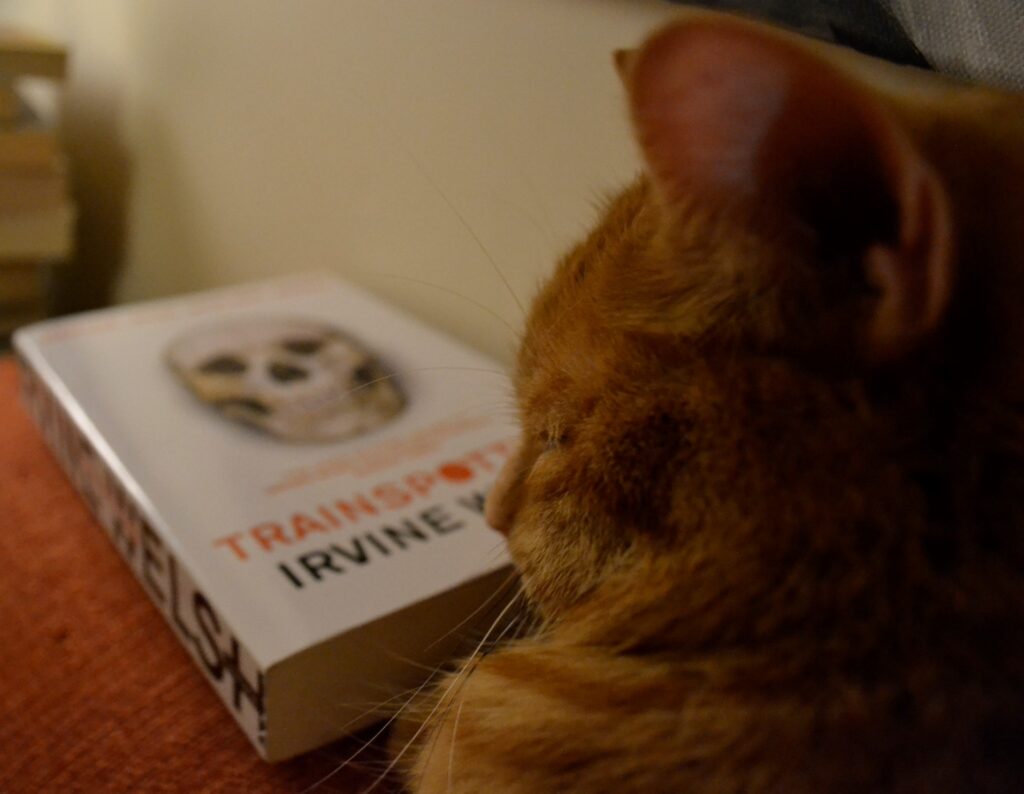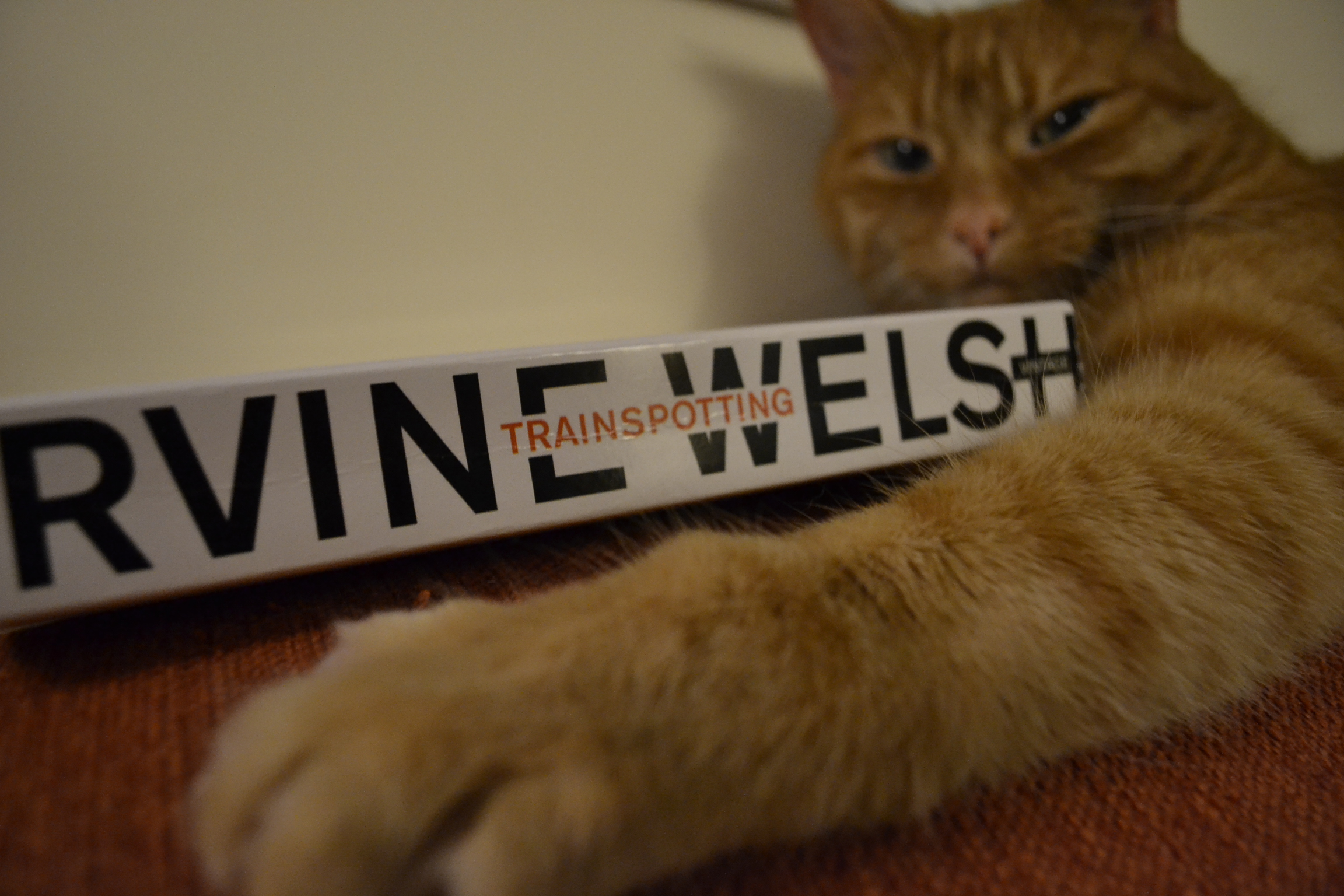The Year’s First Heat Wave
So, it’s finally happened. We have arrived at our first heat wave, and here I am, stuck indoors and debating putting a black veil on the rim of my sunhat. I’ve gotten used to a summer spent inside, but every year I get told by at least summer person how incredible the weather is. Don’t get me wrong, it’s great that there are people who enjoy the sun in this much intensity. I just wish that they could notice my sunhat, jean jacket, and thin gloves and, you know, realize that maybe the warm weather isn’t really for me.
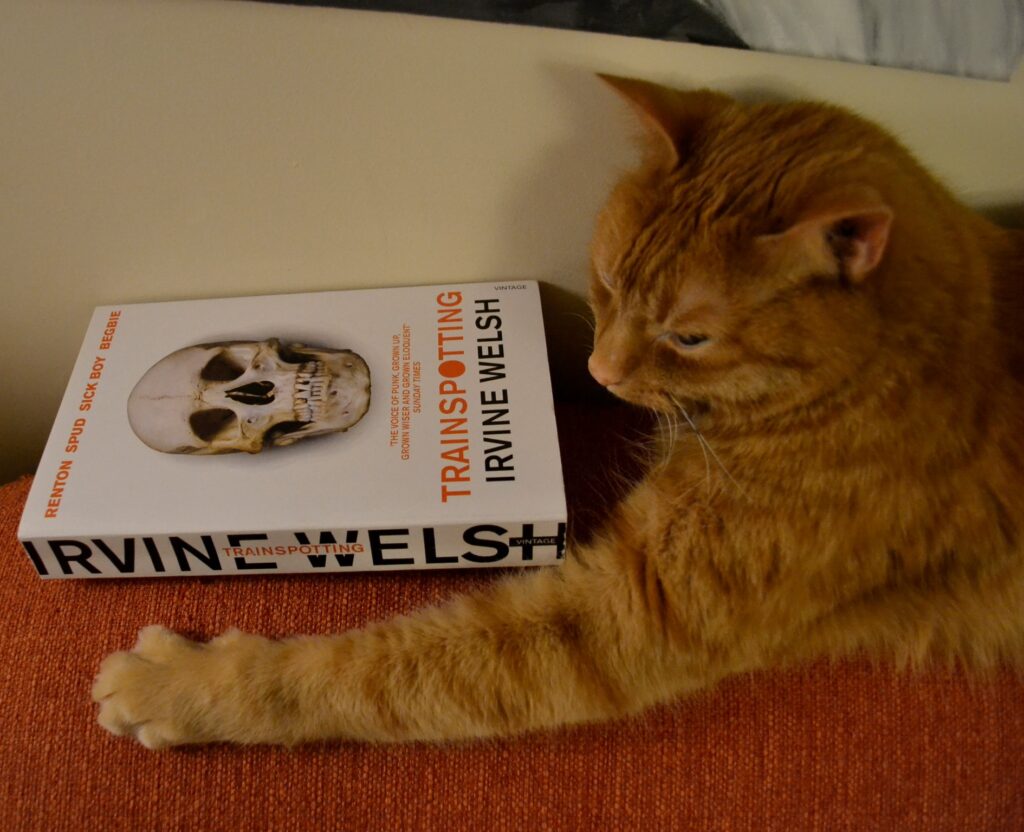
My lovely spouse was saying that the weather is just in time for a tradition we used to take part in when we were teenagers — Anime North. The convention where, no matter how cool it was in the days preceding it, always scorched you utterly while you were attending it. Sometimes I miss the conventions we used to travel to, but then I’m grateful that I ended up in a career where I’m still connected with the arts I love — even the occasional graphic novel. I love books, film, and theatre and I’m lucky enough that they still are a major part of my life.
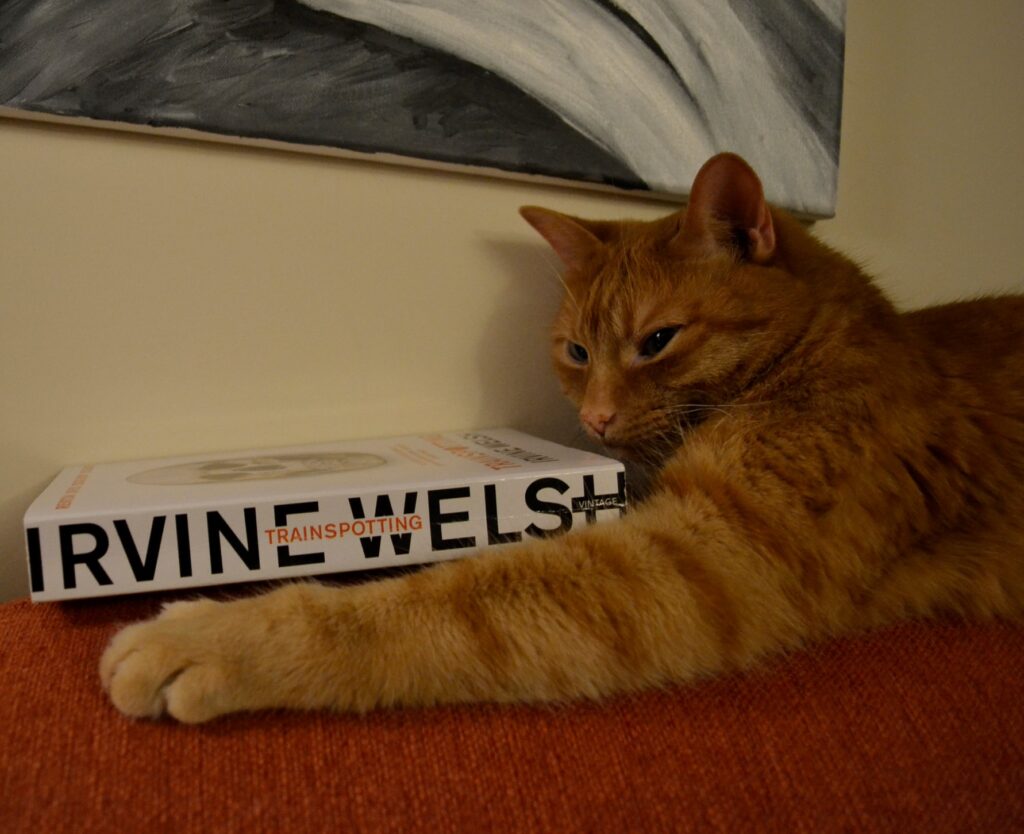
Youth in Tailspin
I’m going to start off by saying that I have not seen the film of Irvine Welsh’s Trainspotting, which I know is legendary. This review is based on the book alone, while I bump up the movie further towards the top of my to-watch list.
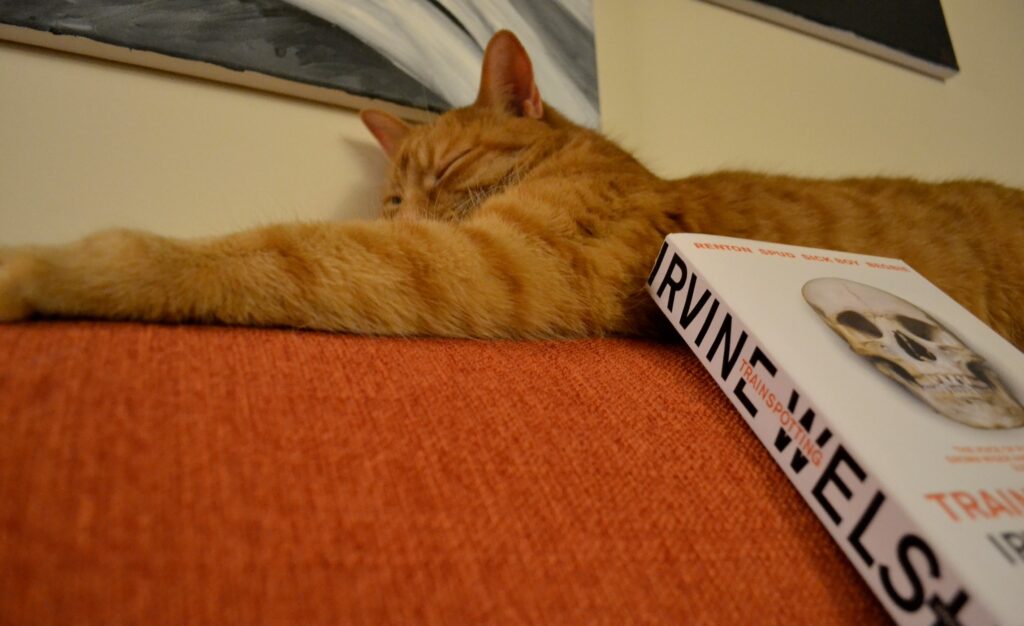
Even if you’ve never read the novel, chances are you’ve heard of it, and you already have some idea what it’s about. Punks. Rebellion. Drugs. Death. Yes, emphatically all those things. More than that, Welsh has constructed a searing novel of what it means to be young, lost, and trying to become an adult in a world that’s on fire due to the HIV epidemic in nineties Scotland and the rampant level of addiction and death. Renton, Spud, Sick Boy, and Begbie are four friends that are close but find themselves individually alienated from parents and the world at large. Each are trying to define themselves and fighting against destructive forces that are coming from both within and without.
As a warning, there is nearly every kind of trigger in this book — from sexual violence to graphic drug use to sexual violence involving minors. If you are a reader that avoids this kind of content, then this novel is best left unread.
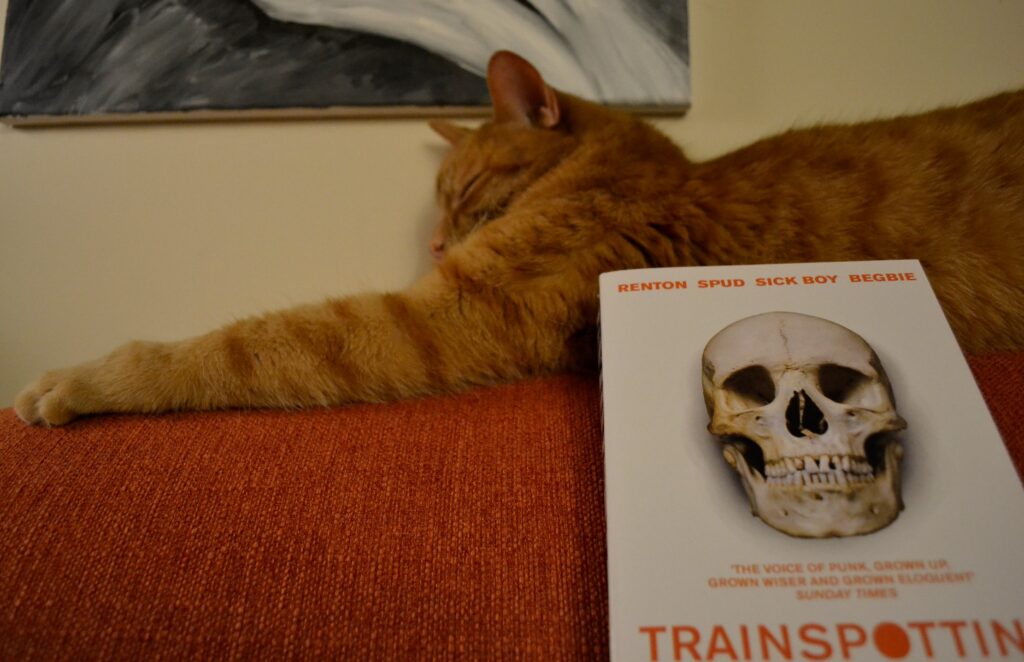
A Note on Language
I know that I have heard a lot of complaints about Welsh’s choice to use dialect. (Various perspectives are written in Scots, Scottish English, and British English.) It can be a challenge to read at times, but it is definitely worth the effort. I found that after a page or two, I got into a rhythm and it was clear sailing from that point. More importantly I don’t think I could picture this novel being written any other way. Choosing to use this language was a choice that is an essential part of making the book the statement that it is and giving it a brutal, gripping realism that it just would not have otherwise.
Sometimes readers seem to get very fixated on language and dialect. I would advise that doing this is the equivalent of avoiding a film because you have to read some subtitles. The world is wonderfully full of speech patterns, dialects, languages, and cultures. Be open to the experience of words that you wouldn’t use and phrases completely foreign to you. It’s an essential part of studying literature.
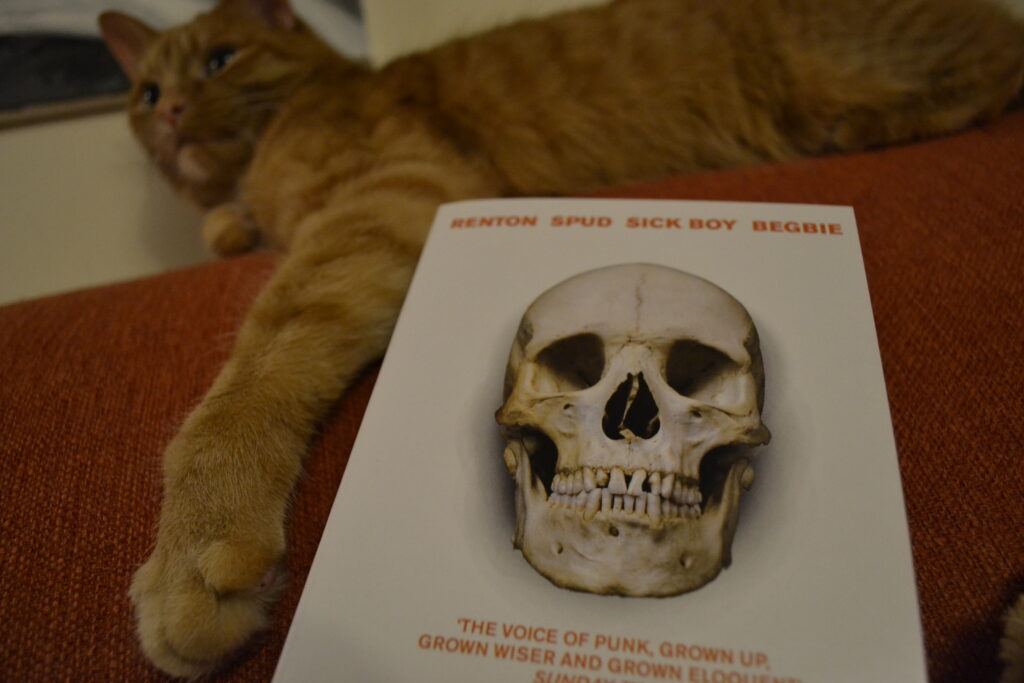
Rage and Identity
At the core of Trainspotting is Renton’s struggle with the person he is becoming and whether he wants to really become anything at all. He has close friends, but he sees them struggling and going nowhere. It’s the conflict of being close to people that you have to escape to save yourself. Renton ultimately makes the choice to save whatever parts of himself remain, but getting there is a long struggle full of heartache and numbing that heartache in any horrible way Renton sees fit.
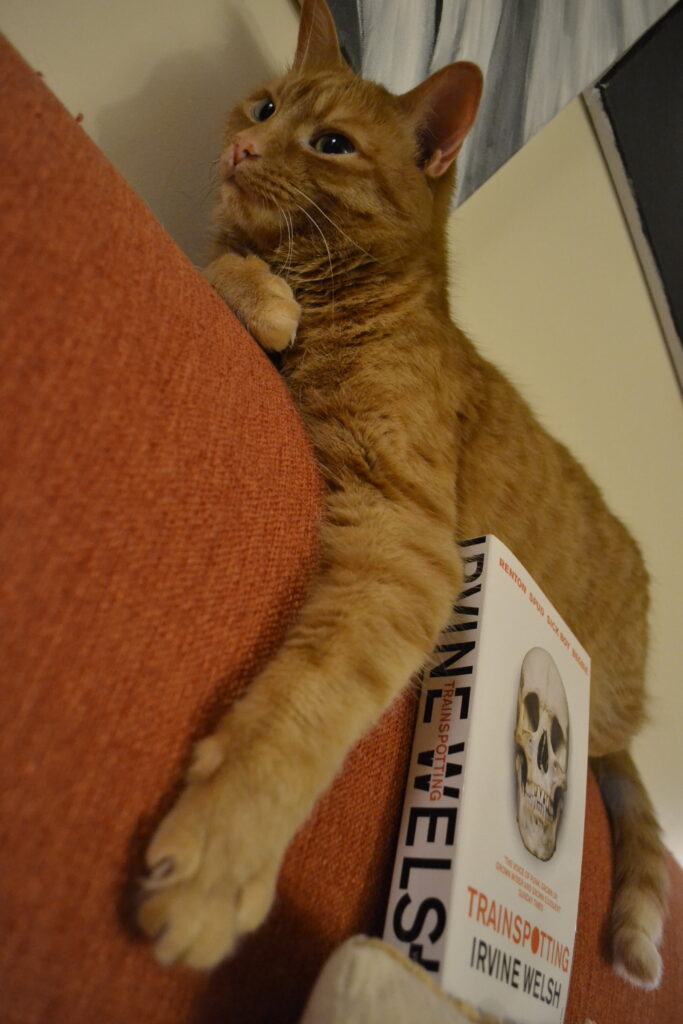
There is also a theme of generational conflict woven throughout the book as these young people look at their parents and don’t want to end up like them. Their parents are dependent on alcohol instead of drugs, and though they judge their children as individuals they fail to connect with now, it’s obvious that they are doing the same things. Numbing pain with substances. Not going anywhere with their lives. The difference consists of a mortgage and a dead-end job.
When Welsh writes about the nihilism of choosing self-destruction over a mortgage and having a traditional life, he is not so bleak as to actually leave it at that. Instead, through Renton, he is imploring the individual to make a different choice and construct their own life free of the influence of family and friends who may not be interested in what’s best for them.
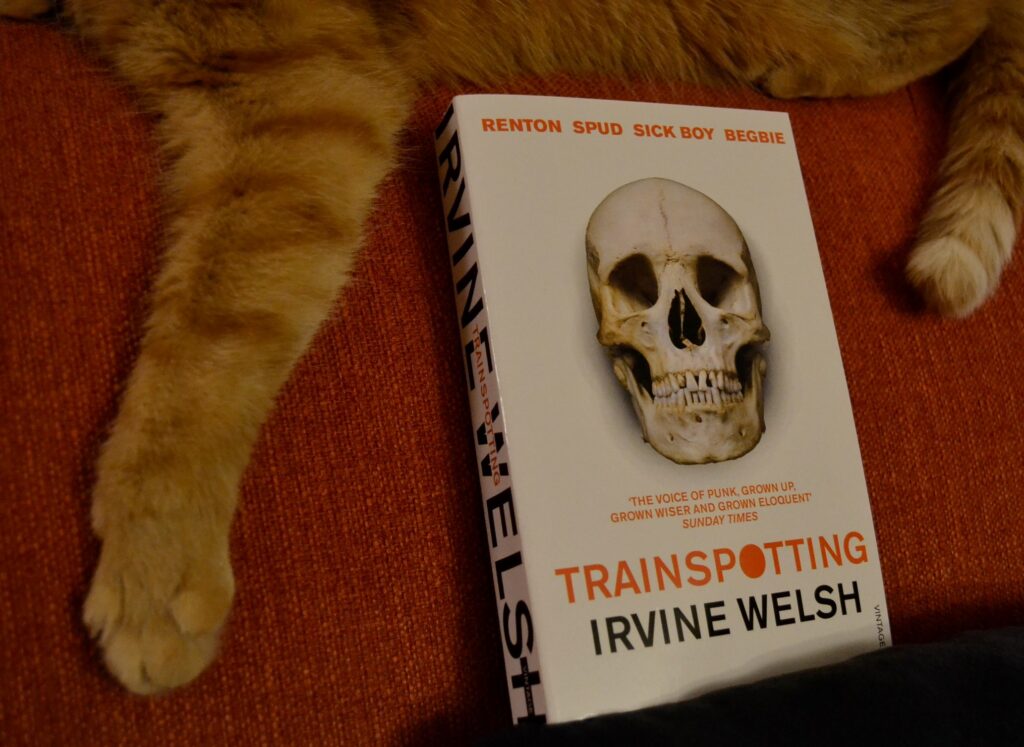
At Least There are Books
One of the best things about having to stay inside in the cool darkness is that I get a kind of second reading season. Everyone else gets through their to-read backlog in only the colder months, but I find I read through a bumper crop of it in June and July.
By August I’m preparing for fall and we have family visits to consider, but I’m trying not to think too far ahead. Seasons pass far, far too quickly and I’m trying to enjoy every moment of them — even if the weather does not exactly align with my preferences.
